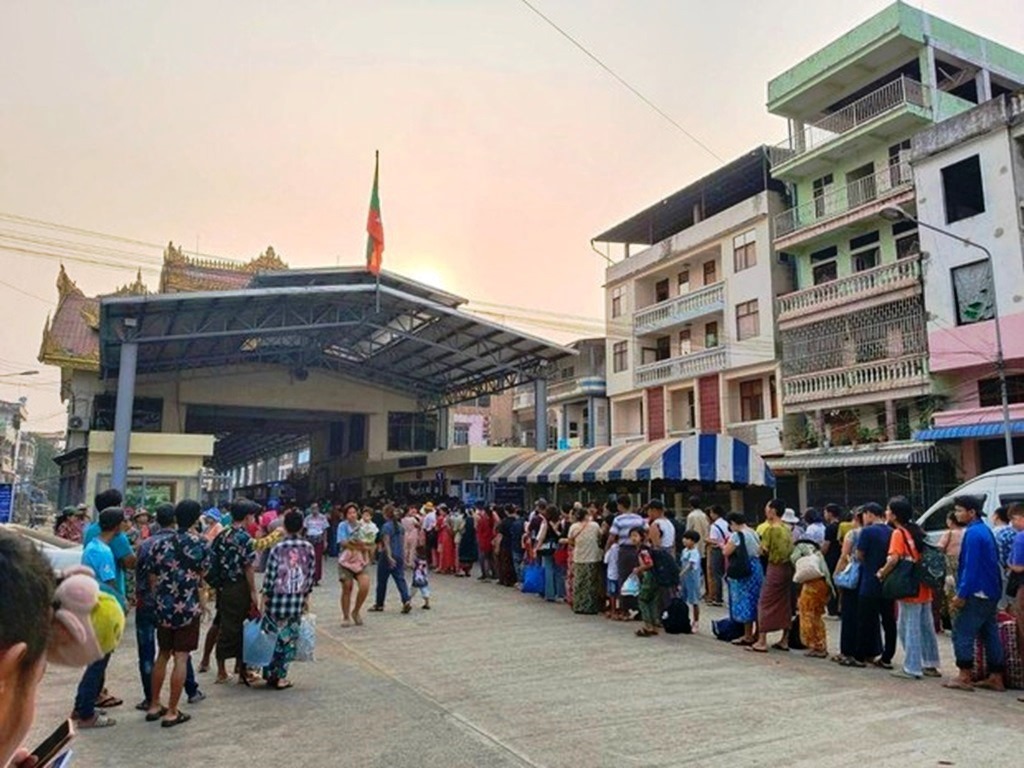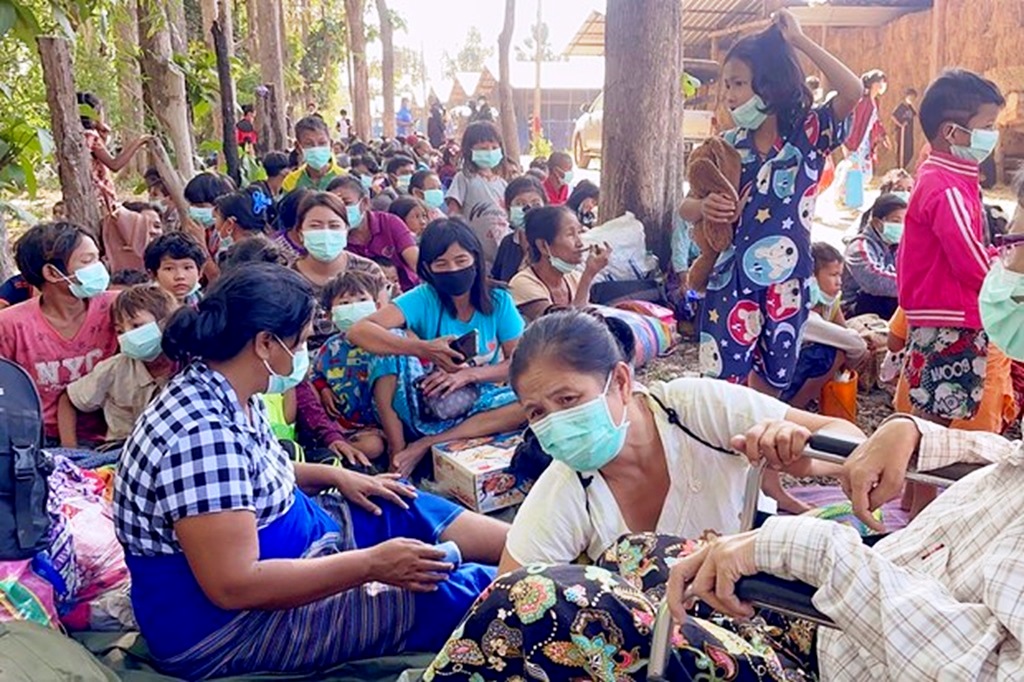A steady stream of refugees, some fearing air strikes, lined up at a the Thai-Myawaddy border crossing to depart Myanmar early on Friday, a day after the strategically important town of Myawaddy bordering Thailand fell to anti-junta resistance that is gathering pace.
The town’s loss deprives the junta, which is already dealing with a collapsing economy, of important border trade earnings while empowering rebel organizations such as the Karen National Union (KNU), which led the attack on Myawaddy, analysts claim.
Foreign Affairs Minister Parnpree Bahiddha-Nukara plans to visit Mae Sot, close across the Moei River from Myawaddy, on Friday to examine the situation after Myanmar’s embattled junta lost more territory in the last round of combat.
Junta spokesperson Zaw Min Tun informed Myanmar media that some of its troops had surrendered because they were accompanied by their families, and talks with Thailand for their release were ongoing. Thailand is ready to absorb 100,000 people fleeing Myanmar, Thailand’s foreign minister said Tuesday, as fighting near a key border town continues.
Thailand borders a 2,400-kilometer border with Myanmar, which has been at war since the army deposed the democratically elected government in 2021. Myanmar has been in crisis since 2021, when the powerful military toppled an elected civilian government, sparking huge protests that it attempted to quell with harsh force.
Simmering rage against the junta erupted into a widespread armed resistance movement that is now increasingly working in tandem with existing ethnic rebel organizations to oppose the military across most of the Southeast Asian nation.
In recent months, Myanmar’s army has faced its most serious danger yet, as fighting from anti-junta forces has invaded formerly quiet areas.
“We have been preparing for a while, and we can temporarily accommodate about 100,000 people in Thailand’s safe area,” Foreign Minister Parnpree Bahiddha-Nukara stated.
Thailand is not a signatory to the United Nations Refugee Convention and makes no distinction between refugees and other migrants. Locals reported heavy skirmishes over the weekend near Myawaddy town, which is located over the border from the Thai town of Mae Sot.
During periodic increases in warfare along Thailand’s lengthy border with Myanmar, scores of civilians flee to the kingdom before returning. There was no “mass evacuation,” but people were crossing the border, he told reporters.
However, Parnpree stressed that the Thai-Myanmar border remained open, and trade continued to flow through Mae Sot and into Myawaddy.
“No fighting, trade is still on, though it is decreasing,” he added, adding that trade had declined by about 30% in the previous year.
Myawaddy is Myanmar’s third busiest land crossing, according to the junta’s trade ministry, with $1.1 billion in goods flowing through in the last year. As conflict in Myanmar escalated, the number of people crossing to Mae Sot from Myawaddy increased this week to almost 4,000 per day.
Earlier on Tuesday, Prime Minister Srettha Thavisin and senior Thai officials met to discuss the border problem. “The prime minister is anxious that the situation will worsen. He also stated that the war in Myanmar should not spill into Thai airspace.
The moves come after Thailand’s government said on Monday that it had authorized the junta’s request to land three “special” flights in the country to repatriate citizens. However, since the 1980s, the monarchy has allowed tens of thousands of people leaving Myanmar to remain in informal communities near the border.
Thailand, which claims to be impartial in the Myanmar war and may take up to 100,000 displaced persons, has engaged with its neighbour, including relief delivery, since Mr Srettha took power in August.
However, the junta may be stretched even farther when the Arakan Army rebel group threatened to restart an offensive in Myanmar’s western province of Rakhine.
Twan Mrat Naing, the chief of the Arakan Army, warned inhabitants of the Rakhine cities of Sittwe and Kyauk Phyu to flee ahead of “a decisive battle,” according to a statement.
The Arakan Army, one of Myanmar’s most prominent ethnic armed forces, took part in Operation 1027, a major attack last October by three rebel factions that seized substantial territory from the military.
Young People in Myanmar Refuse to Fight for Junta Military








